Barkley, Zaha and Januzaj show jury still out on Moyes’s use of youth
He earned a reputation at Everton for blooding youngsters. But did he trust them?
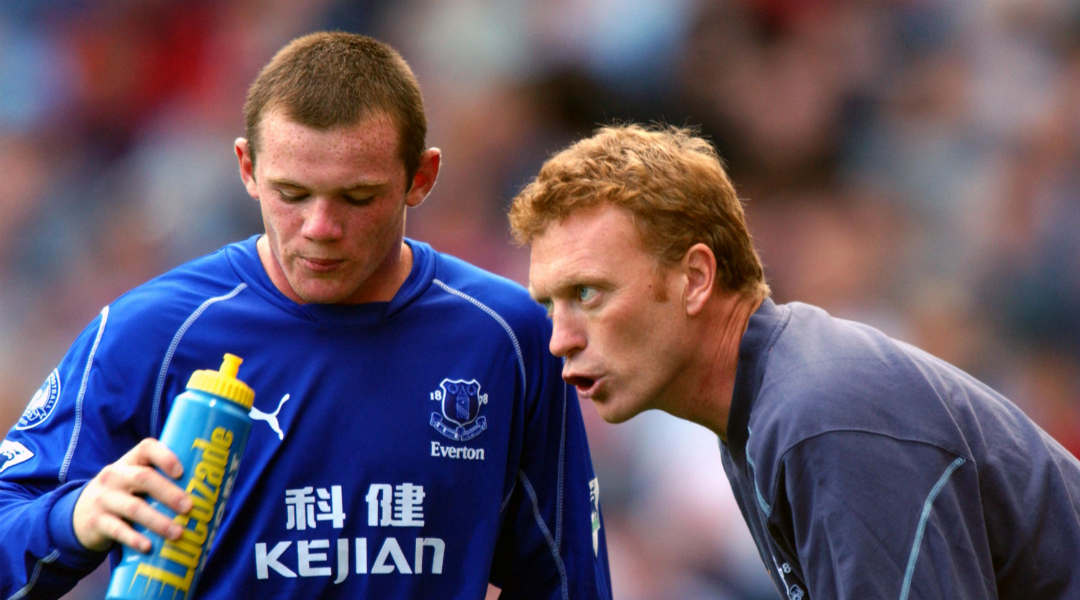
Poor form. A jittery team playing with the brakes on. Reported dressing room unrest. An impending struggle to even qualify for the Champions League. A torrid time in the transfer market. David Moyes has a lot on his plate right now.
Analyses of where Manchester United are currently going wrong are abundant. It’s never nice to kick a man when he’s down, but this is what happens when a team drops from runaway champions to alarmingly unimpressive also-rans inside seven months. People ask questions.
At times such as these, the very foundations of what built a manager’s reputation are thrown into question. Real Madrid hired Jose Mourinho because he was a win-at-all-costs manager, exactly the kind of intensely driven character who could bring Barcelona down. By the end, Mourinho had been hoist by his own petard: he wanted to win too badly, it was said. It was unbecoming for a club of Madrid’s stature and, importantly, class. Not the way we do things around here, thank you very much.
With Moyes under pressure, the very virtues that led to him being appointed at Old Trafford are now being examined and reassessed. One stone as yet unturned, however, is Moyes’ track record of successful youth development.
Get FourFourTwo Newsletter
The best features, fun and footballing quizzes, straight to your inbox every week.
Accepted wisdom states that Moyes is a guru when it comes to blooding young players, with Wayne Rooney often held as the shining example. But is this really the case?
Ross Barkley has exploded into a reinvigorated post-Moyes Everton, while in Manchester, accusations of an increasing over-reliance on 18-year-old Adnan Januzaj are balanced with sheer confusion at the manager’s near-complete reluctance to field Wilfried Zaha.
After 2-1 defeats to Spurs and Swansea within a matter of days, BT Sport pundit David Ginola was particularly critical, questioning why the Red Devils are now apparently almost entirely reliant on someone as young as Januzaj for attacking impetus and invention.
The cases of Barkley, Januzaj and Zaha all serve to highlight that while Moyes is often lauded for putting faith in youth, the reality is somewhat mixed.
Ross Barkley: a case study
The rise of Ross Barkley, for example, seems to show a fundamental discrepancy between David Moyes’ outlook on young players and Roberto Martinez’s – one that also speaks to their more general managerial philosophies and playing styles.
A brilliantly gifted footballer who has emerged as one of the country's most talented youngsters, Barkley has impressed in his 16 games for Everton this season, and made his England debut against Moldova last September. But it is almost impossible to imagine that Barkley would have had a similarly successful season had Moyes renewed his contract at Everton.
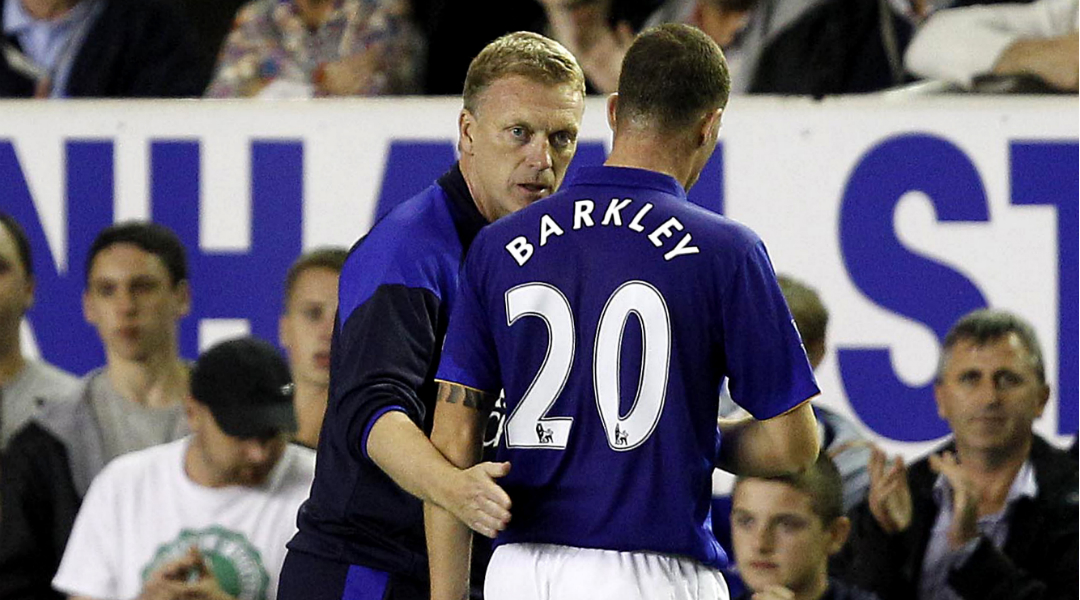
Take Moyes’ words after giving Barkley a rare start last season, against Arsenal - one of only two starts he afforded the youngster in the entire campaign.
"There’s been a lot of stuff said because he came in, done OK and done better than against Tottenham [his other Everton start during 2012/13], so I hope he is better again next time," said Moyes.
He's not ready to be someone who's starting every game and every week, that's for sure"
"He has a lot of maturing to do to make sure he does not lose the ball in the wrong areas of the pitch. I can see he has got confidence from it, hopefully that will help. We have to bring him along and hope we get him better over the next year or two.
"If you’re dropping your shoulder and losing it at the edge of their box, it's not a problem – but if you’re doing it at the edge of your box then it is a problem. They are the sort of things he has to come to terms with. [Fans] would want to see a lot of him but I can tell you he's not ready to be someone who's starting every game and every week, that's for sure." In fact, Barkley would not start another game under Moyes.
Martinez took a different view. Four months later, ahead of the Spaniard’s first league game as Everton boss against Norwich, his comments marked a stark contrast:
“This is football, you play with your feet so you are going to make mistakes,” said Martinez. “It is a game of errors. But what I look for from players is how you react to a mistake; does it stop you getting on the ball again? Do you become a bit more cagey?
“What I have seen from Ross is that it doesn't matter whether he makes a mistake, he is ready to get on the ball again. He just carries on playing in the same manner. When a player does that, I have no problems whatsoever.
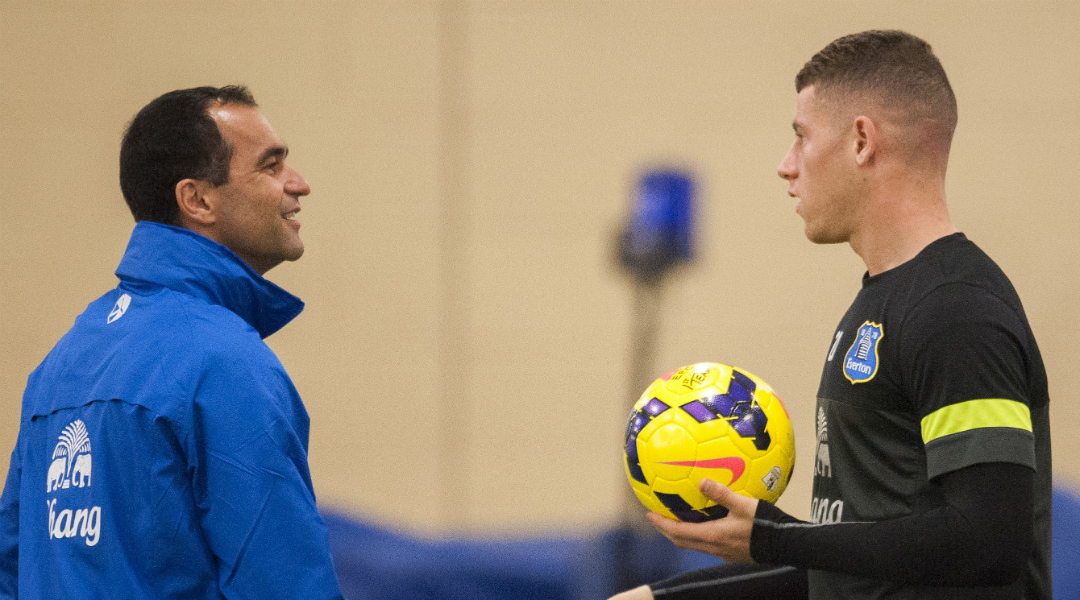
“Mistakes are going to happen. The biggest strength Ross has is that he doesn't get affected. He has got such an incredible talent that we need to help him, so he knows how to control that. I have never seen Ross make a mistake and then be affected in the next action.
“Sometimes you will see someone start a game really well but then they will make a mistake and, all of a sudden, he doesn't want to participate. Ross is not like that at all. I really admire that. You know that somewhere down the line, he is going to get rid of those mistakes.” The next day Barkley spanked in a brilliant strike at Carrow Road to truly announce himself in the Premier League.
There is a marked difference in language and tone between the two managers that is quite revealing. One speaks of "problems" and "maturing", of Barkley being "OK" and "not ready"; the other is full of admiration and encouragement, concentrating less on caution and more on Barkley’s "incredible talent".
This willingness to put genuine faith in an untested youngster was not lost on Barkley, who before fracturing a toe in the FA Cup win over QPR had appeared in every matchday squad under Martinez, albeit regularly rested to the bench.
Moyes could have spoken to me a bit more. Roberto speaks to everyone a lot. He gave me a lot of confidence"
“I’d say Roberto trusts me more,” Barkley said in September. He quickly remembered to add "but David Moyes helped me a lot because he helped me come through a lot of injuries," but what the youngster said next reveals very different managerial methods.
“With David Moyes, he could have spoken to me a bit more. Roberto speaks to everyone a lot. He gave me a lot of confidence by telling me he feels I can be a big player for Everton, not just this season, but for many seasons.”
Goodison supporters were often frustrated that Moyes was being too cautious with Barkley, holding him back unnecessarily. Twice sent out on loan last season, Barkley made just two league starts (and five substitute appearances) for the Toffees; 36-year-old Phil Neville made 14.
The disappearing youngsters
At this point, United supporters may note a certain parallel with Moyes' suspicion of Zaha. No matter how ineffectual the performances of wide players like Ashley Young and Antonio Valencia, the silky speedster signed from Crystal Palace for £15 million is yet to play any real part under the new manager, his Premier League experience restricted to two brief cameos.
“I want Wilf to get used to what happens here,” the United gaffer has said. “The competition is hard. It is important Wilf gets to see the level of the training here, the level of the players and the quality they have got. He is getting better which we are pleased about.” Zaha’s rare outings in the red shirt to date have looked restrained, like a caged gazelle, timid and lacking adventure.
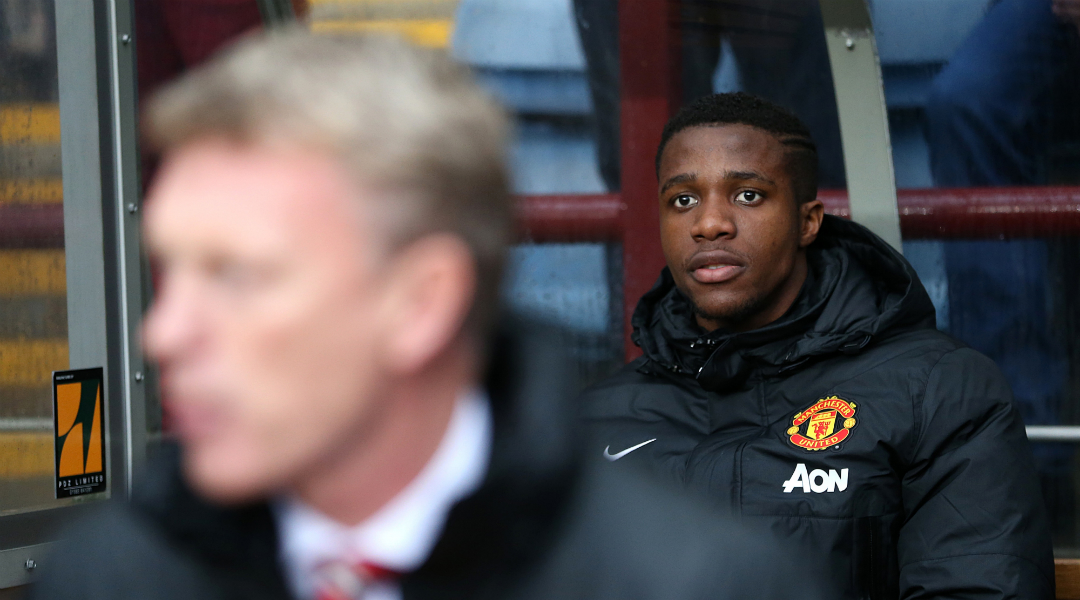
Moyes’ track record of bringing through young players at Everton is generally admirable, but there was gristle to go with the bacon. Success stories like Jack Rodwell, Tony Hibbert, Leon Osman and Wayne Rooney are balanced with players touted for big things who never quite made it, sometimes in strange circumstances.
In August 2008 Jose Baxter became Everton’s youngest ever senior player, the Bootle-born 16-year-old replacing team-mate James Vaughan in the Goodison record books. A week later Baxter made his first start – but he only made the first XI one more time in the next four seasons. Eventually, frustrated at his lack of opportunities, he turned down a two-year contract offer and left for Oldham, where he scored 15 goals in his first season. He now plays for Sheffield United.
Baxter and Vaughan aren't the only youngsters who broke through under Moyes but left to pursue careers elsewhere. Others include Adam Forshaw, Dan Gosling - whose departure for Newcastle caused such an internal stir at Goodison - and Jake Bidwell, now at Brentford having in 2009 become the Toffees’ youngest-ever European debutant.
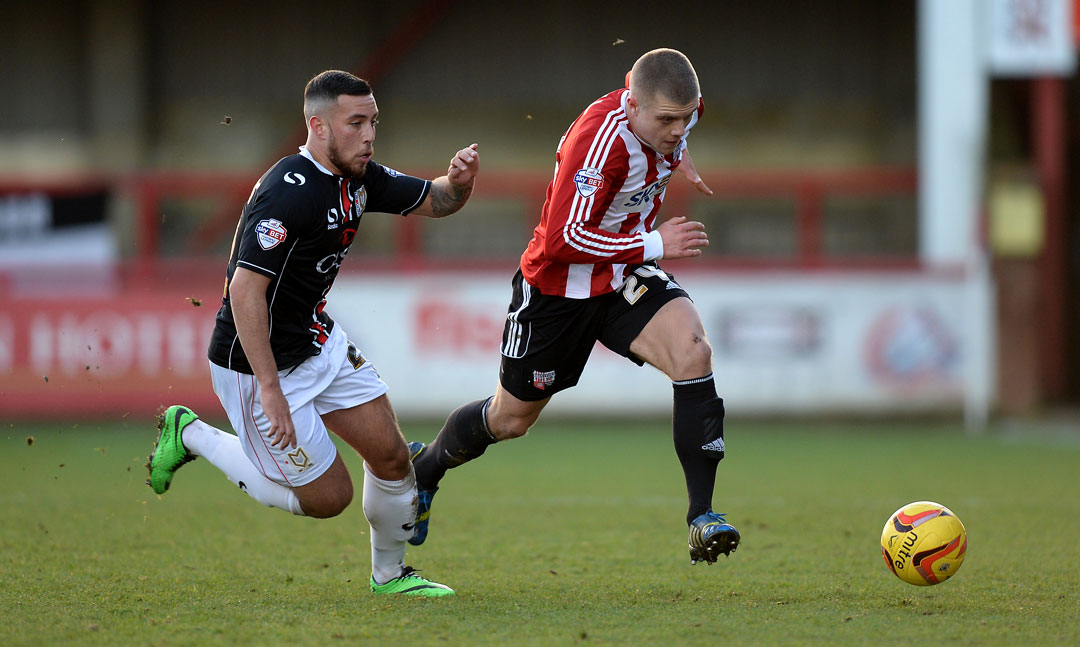
Bidwell also made his first Everton appearance at 16, a bright-eyed boy getting his chance on the big stage in Europe. “It was a bit of a shock to be honest,” Bidwell tells FourFourTwo. “I wasn’t expecting it, but I was only 16 at the time so I was made up. I thought I played OK.” From there, you would think the youngster might get further chances to prove himself, in cup competitions at least. But it wasn’t to be: he never appeared in the first team again, even from the bench.
“The one regret is that I didn’t make an appearance after that, which was a bit of a disappointment for me,” says Bidwell – now a regular at Brentford, having moved permanently last summer after two successful loan spells. “I thought I might have got a bit more of a shout but I was also realistic – I had one of the country's top left-backs, if not the top left-back, in front of me: Leighton Baines. It was always going to be difficult.”
Callum McManaman was another. Released by Everton, he came back to haunt his former club when he scored a goal in Wigan’s 3-0 FA Cup quarter-final win, a cruel twist of fate that ended Moyes’ final chance to lift a trophy at Goodison Park.
But what about Januzaj?
The clear counterpoint to the idea that Moyes is hesitant with youth is the example currently dictating Manchester United's play. No, not Wayne Rooney: Adnan Januzaj. The Belgium-born boy with more passports than Howard Marks has had Moyes salivating since the summer, the easy riposte to suggestions the Scot is as cautious with youth as he is with team tactics.
Januzaj has made 21 first-team appearances this season, an oasis of class and self-confidence in a desert of uncertainty. He certainly enjoys the manager’s confidence, to the point that there’s a danger United are beginning to look reliant on the 18-year-old.
Nine of the Belgian's appearances have been from the bench, and four of those have been when United weren't winning. There is the sense that all too often Januzaj is Moyes' trump card, a teenager carrying the burden of expectation for an entire club.
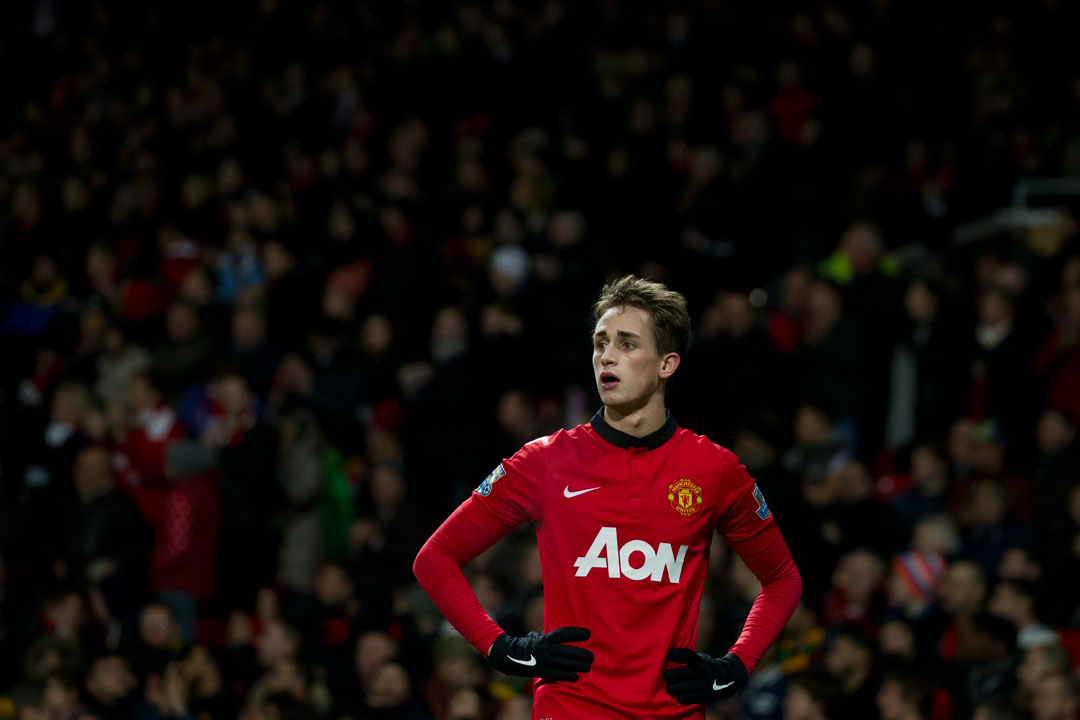
By comparison, Barkley, who has been rested to the bench five times, has only been brought on once in a losing position – in a half-time switch against Sunderland. True, Everton have only lost three this season - although it's hardly to Moyes's credit that United have lost eight - but in one of those other losses (in the League Cup at Fulham), Martinez declined to bring on the youngster once the Toffees went behind, instead introducing the experience of Phil Jagielka and Gareth Barry.
That Moyes has his favourites is historically proven; few managers have shown such a tendency to re-sign players for second stints – Steven Pienaar, Landon Donovan, Thomas Gravesen and James McFadden to name but a few. Moyes likes players he trusts and Januzaj is starting to look like one of them. Barkley, it appears, wasn’t. Wilfried Zaha, for the moment, isn’t.
Ensuring that Manchester United don’t rely too heavily on Januzaj will be one of Moyes’ big challenges this season, particularly bearing in mind Robin van Persie’s persistent injury problems and the club’s difficulties in the transfer market.
Barkley’s blossoming at Everton under Martinez suggests that the United manager has tended to err on the side of caution when it comes to dealing with young players. Where Januzaj and Zaha go from here will tell us much about Moyes’ moulding methods.
